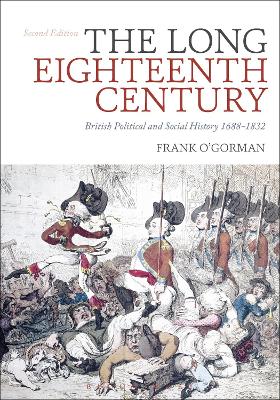Arnold History of Britain
1 total work
The 'long eighteenth century' in British history, the period from 1688 to 1832, defies easy characterisation. To examine its political and social history is to be struck by the complexity of its values and practices. Some of its features - the growth of towns, the demand for political, social and humanitarian reform, and the establishment of parliamentary government - anticipate the concerns of later generations and impress us with their familiarity. The huge inequalities of wealth, on the other hand, the destitution of the masses, and the harsh treatment of children are ills made remote by their sheer intensity and scale. Acknowledging the complexities, this study identifies the key thematic patterns that constitute much of the consistency of the period.
It examines the development of the internal structure of Britain and of a sense of British nationhood; the role of religion in the life of the state and of the people; the slow transition from a society of orders to a society based increasingly on class distinctions; the commercial and imperial expansion which contributed so much to the prosperity of British society; the growing role and status of Britain in Europe; and the development, albeit uneven, of liberal forms of political thought and action. Blending narrative with more purely analytical chapters, 'The Long Eighteenth Century' provides a fresh and cogent account of the period, introducing a wide audience both to the contours of the age and to the genuine excitement of recent debate.
It examines the development of the internal structure of Britain and of a sense of British nationhood; the role of religion in the life of the state and of the people; the slow transition from a society of orders to a society based increasingly on class distinctions; the commercial and imperial expansion which contributed so much to the prosperity of British society; the growing role and status of Britain in Europe; and the development, albeit uneven, of liberal forms of political thought and action. Blending narrative with more purely analytical chapters, 'The Long Eighteenth Century' provides a fresh and cogent account of the period, introducing a wide audience both to the contours of the age and to the genuine excitement of recent debate.
